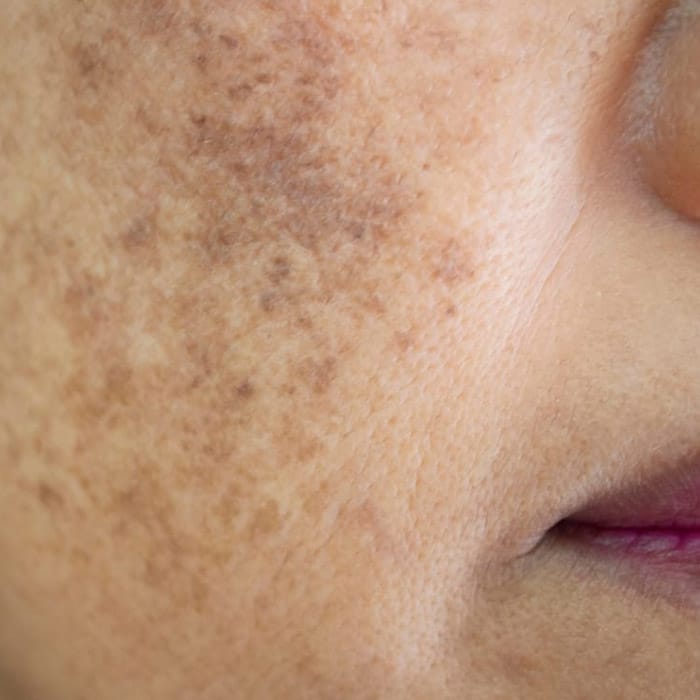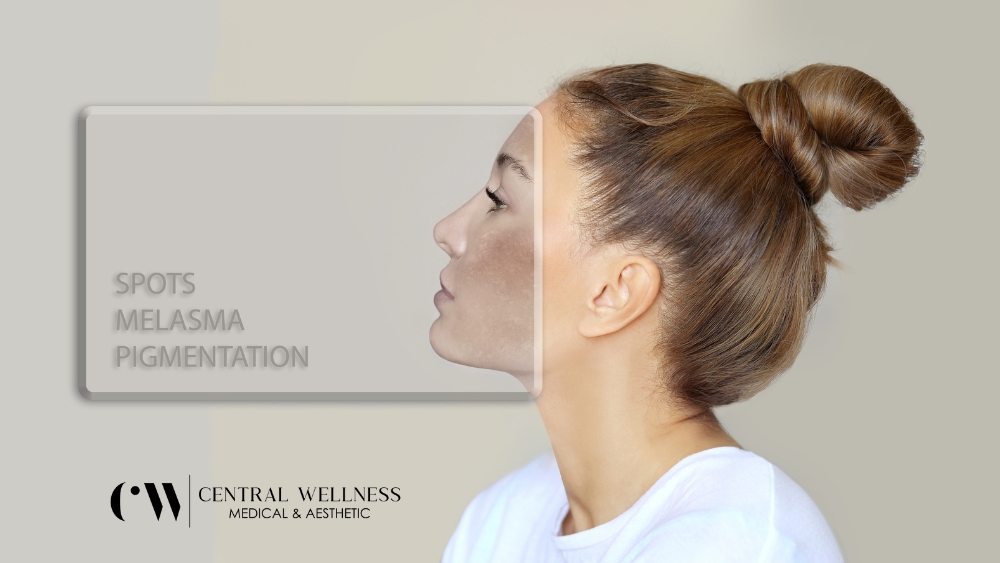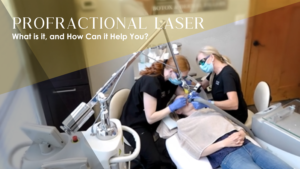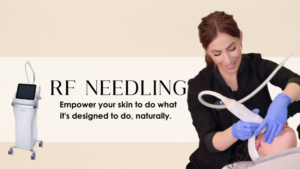Unmasking the Mystery: All About Hyperpigmentation
Have you ever noticed uneven patches of darker skin on your face or body? If so, you might be dealing with hyperpigmentation, a common skin concern that affects millions worldwide. But fear not, beauty warrior! While it can be frustrating, understanding what hyperpigmentation is, its causes, and how to effectively address it can equip you with the knowledge and tools to confidently navigate your unique skin journey.
What is it?
Simply put, hyperpigmentation occurs when excess melanin, the pigment responsible for our skin’s color, is produced in certain areas, leading to darker patches. It can manifest in various forms, including:
- Sun spots and age spots: Caused by prolonged sun exposure, they appear as flat, brown patches typically on sun-exposed areas.
- Melasma: Characterized by symmetrical patches of brown, gray, or tan discoloration, often triggered by hormonal changes like pregnancy or birth control pills.
- Post-inflammatory hyperpigmentation (PIH): Darker marks left behind after inflammation or injury to the skin, such as acne scars or eczema.
- Freckles: Clusters of small, light brown spots, usually genetic in nature.

Understanding the Culprits: What Triggers Hyperpigmentation?
While sun exposure is a major culprit for many types of hyperpigmentation, other factors can play a role:
- Hormonal fluctuations: Pregnancy, birth control, and thyroid issues can contribute to melasma.
- Skin injuries: Acne, burns, and insect bites can trigger PIH.
- Certain medications: Some antibiotics and chemotherapy drugs can increase sun sensitivity and risk of hyperpigmentation.
- Skin conditions: Eczema, psoriasis, and lupus can also lead to hyperpigmentation.
Addressing Hyperpigmentation
Remember, while hyperpigmentation may be a concern, it is rarely harmful. But if it affects your confidence or self-esteem, here are some strategies to improve its appearance:

Sun Protection is Paramount: This is non-negotiable! Daily sunscreen use with SPF 30 or higher, broad-spectrum protection is crucial to prevent further darkening and minimize future sun damage. Seek shade during peak sun hours and consider sun-protective clothing for added defense

Skincare Regimen Revamp: Consult a dermatologist for personalized recommendations, but generally, look for products with ingredients like:
- Vitamin C: A potent antioxidant that brightens skin and inhibits melanin production.
- Niacinamide: Reduces inflammation and helps balance skin tone.
- Kojic acid and licorice root extract: Natural lightening agents, but use with caution as they can be irritating.
- Retinoids: Promote cell turnover and reduce pigmentation, but require careful use under a dermatologist’s supervision.

Professional Treatments: Depending on the severity and type of hyperpigmentation, your dermatologist might recommend:
Chemical peels: Exfoliate and remove the top layer of skin, promoting new cell growth.
Microneedling: Creates tiny punctures in the skin to stimulate collagen production and improve pigmentation.
Broadband Light Therapy: Target specific pigment cells for a more precise approach.

Embrace Patience and Self-Love: Treating hyperpigmentation requires consistency and realistic expectations. Results may take weeks or even months, so be patient and gentle with your skin. Focus on celebrating your unique skin story and the journey towards a healthier, more radiant complexion.
Celebrate Diversity! Remember, skin comes in all colors and textures, and hyperpigmentation is simply a part of the beautiful human tapestry. Embrace your unique skin tone and the journey of learning what works best for you.
Remember, you are not alone in this! By understanding hyperpigmentation, its causes, and effective management strategies, you can confidently navigate your skin journey and empower yourself to embrace your unique beauty.
Disclaimer: This blog post is not intended to be a substitute for professional medical advice. Always consult a dermatologist for personalized diagnosis and treatment recommendations.
Interested in learning more from our experts? Book your FREE consultation today or call 406.869.1066!




